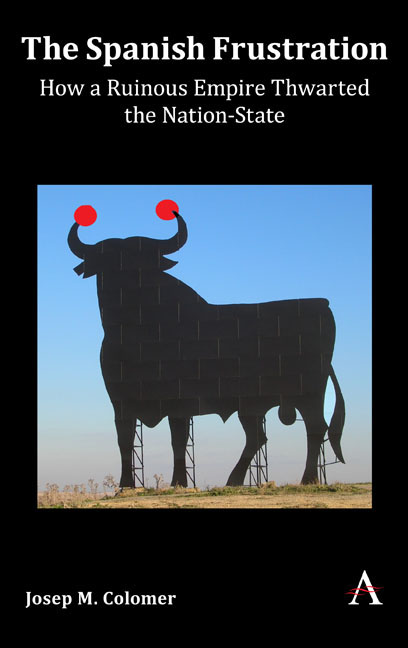3 - An Incomplete Nation
Published online by Cambridge University Press: 11 July 2019
Summary
Local Patriotisms
The Imperial Burden
The Damned “Mili”
Parochial-Catholicism
Multiple Languages
Tribes with Flags and Chants
National-Footballism
Not Very Spanish, After All
Some nationalists hold that “nations” exist from time immemorial and that they have always been the basis for sovereign national states. This approach to the question, which is called “essentialist” or “primordialist,” has been challenged during the last several decades, as the emphasis in the analysis has moved to the importance that diverse economic and political processes have for initially creating and constructing “nations” where there were not.
The “constructivist” approach has become dominant in current social studies. Several decades ago, political scientist Karl Deutsch had already remarked that “the idea of nationality became compelling to people only in the modern period as a result of economic and attendant social changes,” especially regarding education and the construction of areas of social communication. Historian Ernest Gellner observed that “nationalism, which sometimes takes pre-existing cultures and turns them into nations, sometimes invent them, and often obliterates pre-existing cultures.” Historian Eric Hobsbawm sternly stated, “Nationalism comes before nations. Nations do not make states and nationalisms but the other way around.”
More recently, political scientist David Laitin has observed that, still, “people often believe, mistakenly, that certain social categories are natural, inevitable, and unchanging facts about the social world. They believe that particular social categories are fixed by human nature rather than by social convention and practice.” Contrariwise— he holds— it was the “English, French, and Spanish kings [that] sought to emphasize a common ‘national’ culture to help bring coherence and efficiency to state rule.”
A modern nation exists as long as people who do not know each another on a face-to-face basis imagine that they form a unified community. The basic shared references in people's imagination are a territory, a race, a religion, a language and other cultural elements. A typical process may start, first, with nationalist movements and state rulers selecting and activating some previously existing cultural traits of the population, such as those just mentioned, making people believe that they form a single community with others that share the same traits and trying to make them the unifying standard for all.
- Type
- Chapter
- Information
- The Spanish FrustrationHow a Ruinous Empire Thwarted the Nation-State, pp. 73 - 110Publisher: Anthem PressPrint publication year: 2019



